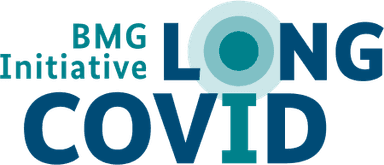Dec 2022 | Robert Koch Institute (RKI) | University Hospital Carl Gustav Carus Dresden
Further results of a sub-project of the research project "Post-acute health consequences of COVID-19" have been published
The research project "Post-acute health consequences of COVID-19" led by the Robert Koch Institute (RKI), which started in December 2021, has published further results.
The project "Post-COVID-19 Monitoring in Routine Health Insurance Data" (POINTED) is coordinated by the Centre for Evidence-based Health Care (ZEGV) at the University Hospital Dresden and the RKI and is part of the research initiative "Post-acute health consequences of COVID-19".
In this sub-project, the researchers analysed data from the statutory health insurance funds (SHI) from January 2019 to June 2021. The researchers included a total of 641,704 patients with COVID-19. When comparing the frequency of newly diagnosed autoimmune diseases between the COVID-19 group and the corresponding control group, it was found that those suffering from COVID-19 had a 42.63% higher probability of developing an autoimmune disease. Those with a more severe course of COVID-19 had a higher risk of developing autoimmune disease.
Robert Koch Institute (RKI)
The Robert Koch Institute (RKI) is a federal institute in the portfolio of the Federal Ministry of Health. The RKI is the central institution of the Federal Government in the field of disease surveillance and prevention and thus also the central institution of the Federal Government in the field of application and action-oriented biomedical research. The core tasks of the RKI include the detection, prevention and control of diseases, especially infectious diseases. It develops scientific findings as a basis for health policy making, advises the responsible federal ministries, notably the Federal Ministry of Health (BMG), and informs the expert public and, to a greater extent, the population at large.
University Hospital Carl Gustav Carus Dresden
The University Hospital Carl Gustav Carus Dresden is a maximum care hospital and part of the Technical University of Dresden. Until the end of 1993, the hospital formed the Dresden Medical Academy together with the Medical Faculty of the TU Dresden. The history of the faculty can be traced back to 1748, when the "Collegium medico chirurgicum" was founded in Dresden.
Today, Dresden University Hospital unites 26 clinics and polyclinics, six institutes and 17 interdisciplinary centres. Through cooperation with, for example, the Centre for Regenerative Therapies (CRTD), the Biotechnology Centre or the Max Planck Institute, medical research at the Dresden location also plays an important role on an international level.
